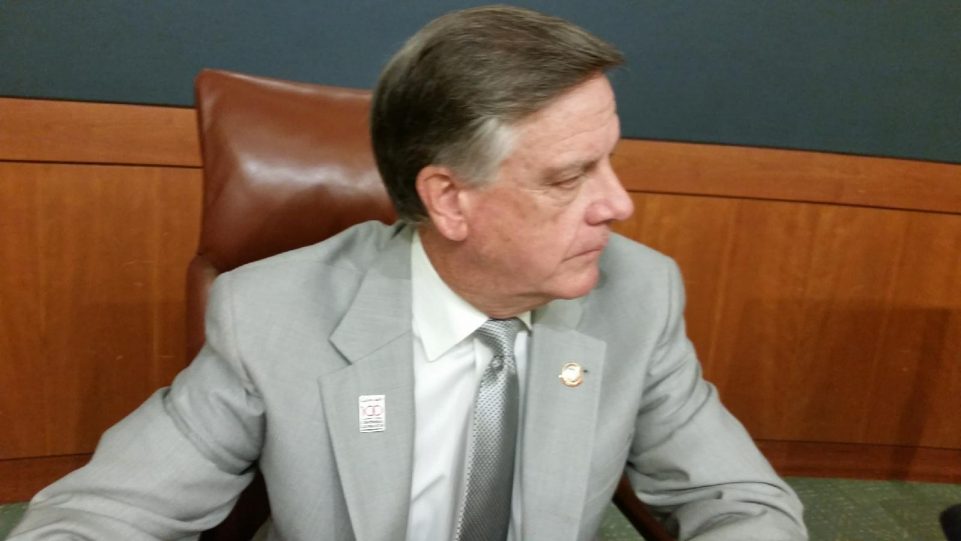Had it been Jim Clarke’s call, Council Chambers would have remained dark last evening.
The Councilman would have preferred staying home since no urgent business was on the agenda.
He had to have been pleased with the outcome, 120 bumpless minutes
As forecast by all non-protestors, the special City Council meeting to debate regulations for a piece of the Inglewood Oil Field — with a non-existent opponent – was a meaningless exercise in hot air.
Once Sentinel Peak Resources withdrew its opposition to the scheduled release of the draft environmental impact report, hours ahead of the meeting, the evening morphed into a ball game without a ball in sight.
Councilman Clarke said Sentinel’s abrupt withdrawal was a blow because “we were proposing a middle ground. I wish we had gone forward with it. (Sentinel) wanted us to go away for 18 months until they completed their study and would submit a plan. The other (Sentinel) option was, ‘no, we want to go forward with something we put together in 2013, which has been together a long time. My middle ground proposal was to release the drafts now so everybody could see what the rules are. If you are playing a game, you need rules.”
“The reality is, there is nothing more to discuss,” said Mr. Clarke, who is, in a positive way, the most conventional of politicians. “We are moving forward with the release of the draft of the specific plan and the draft EIR.”
Sentinel’s withdrawal announcement eliminated all dreamed-of influence by oil field activists who want the patch to go away.
So What Is New?
Before the meeting, Mr. Clarke said that “I don’t need to sit there for an hour and 45 minutes, listening to protestors protest something already decided.
“But I have to sit there and listen to all of this stuff.”
Mr. Clarke, plainly annoyed, complained of receiving an anti-oil field flyer at his home. Adopting the exaggerated whiny voice of an embittered protestor, he said:
“We have to stop the oil companies. We have to stop them from taking the wealth.”
Mr. Clarke said that protestors “merely are whipping up people to get all excited.”
Back to business and the timeline.
“Let me explain what is going to happen,” he said.
“We can concentrate on what’s going to happen with the EIR but it still will be another 30 to 60 days when we release the draft specific plan and the draft EIR. Next is a public comment period, normally 60 days. But the Council may decide 90 days since it is 600 pages.
“After accumulating all of these comments, you have to go through and evaluate them, and provide comment back on each comment.
“That will take 30 to 60 more days.
“Then the city will be in position to submit the final drafts to the City Council.
“Meantime, Sentinel Peak Resources is doing a study on the oil field.”
But there is a major wrinkle, said Mr. Clarke.
“The problem all along is that this specific plan is based on a project that we have put together as an assumption based on what we have and what past practices regarding what we think may happen over the next 15 years.
“This could or could not be based on reality. The previous operator of the oil field was not helpful at all in providing information to us.”
Mr. Clarke said that “we really were using a crystal ball to come up with what we thought would happen in the oil field.
“When (Sentinel Peak Resources) finish their study in about a year, they can submit an amendment to the specific plan based on the reality of what they think will happen.”
Meanwhile, Mr. Clarke projects a five-month gap between publication of the specific plan and Sentinel’s reply — or pushback. “They could litigate against the plan,” he said. “Or residents could. We could be subject to all of these lawsuits we have to spend money on.”

